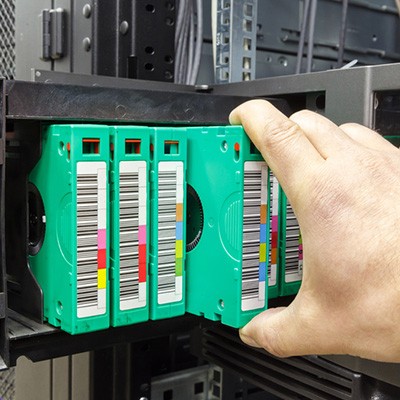If you don’t think that your business is under attack from the Internet, you’re likely to be running an organization that will be decimated by a cyberattack. If you want to avoid this scenario, you will have to be prepared to do what you can to keep it safe. This entails following some strict rules and being smart about where and when to deploy security checkpoints. We looked at what today’s cyberattack entails and what an organization needs to do in order to keep the threats that are bandying about from having a marked effect on your business.
EZ MSP Blog
It is remarkable how much trust people have in Internet-based companies. Not just that they will fulfill the expectations placed on them, but that people routinely provide extremely sensitive information to these companies without thinking for a second about what they do with it. We will take a look at data collection practices, what Internet companies want with that data, and how millions of people every year become victims because they entrust their PII (Personally Identifiable Information) to corporations that promptly lose it.
Your business needs to have data backup and disaster recovery, period. There is no exception to this rule. The hard truth of the matter is that your business is risking far too much by not implementing data backup and disaster recovery. Today, we’ll examine scenarios in which a business might find its data threatened, as well as how modern businesses can keep their data safe, even when the world seems out to get them.
You can never know whether or not that app you just downloaded to your smartphone can expose your data or identity to risk. While Google Play and the iTunes store certainly put efforts into ensuring that users can safely browse their app stores, it’s unlikely that they can find every single malicious app out there before it infects someone’s device. Therefore, you need to consider the following measures to ensure that you don’t put your business at risk by downloading unsecure apps.
As invaluable as the security solutions that protect a network are, they can be effectively rendered useless if a cybercriminal is skilled in social engineering. Social engineering is the practice of using manipulation to access protected resources, as we will review later. If your business and its team are vulnerable to a social engineering attempt, you are missing a critical piece of your data security strategy.
Most small businesses don’t have the luxury of an in-house IT department. Even if they do have one, it’s likely a small department run by a handful of folks who have their hands full with either implementation projects or simply staying afloat. With opportunities to invest in the improvement of your infrastructure few and far between, a network audit can help you identify where your network suffers most, and what you can do about it.
If you’ve watched the news lately, chances are you’ve seen the Equifax breach and the ridiculous fallout it has caused. Over 133 million personal records have been stolen. While it’s difficult not to feel individually victimized by such a breach, it’s important to remember that it’s often not your specific credentials targeted by hackers. Since businesses often hold onto valuable information, they have big crosshairs painted onto them. It doesn’t even stop there--any vendors or partners you deal with are also in danger of hacking attacks.
With the mountainous success of Game of Thrones, the BBC-produced show has always been understandably concerned with their security. However, with the show officially overtaking the original source material, A Song of Ice and Fire, there is an increased presence of curious fans and members of the press with an eye out for a sneak peek at the action. This has led to more; somewhat more modern measures being adopted to keep the production’s secrets safe.









